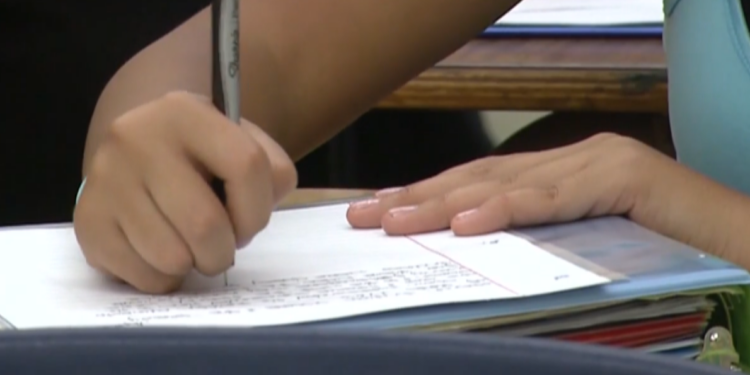LANSING, Mich. (WZMQ) – Michigan has approved its first update to K–12 health education standards since 2007, adopting a new framework that reflects major cultural, technological, and legal changes in the lives of today’s students. The Michigan Department of Education says the standards will help districts modernize lessons around issues ranging from mental health and nutrition to social media safety, vaping, and the rise of artificial intelligence.
Deputy Superintendent Diane Golzynski said the old standards were written in a world that no longer exists. “If you think about it, in 2007, there wasn’t TikTok, there wasn’t Snapchat, or AI. We didn’t have a legal marijuana law in the state of Michigan for adults. We didn’t have problems with vaping,” she said.
The new structure groups expectations by grade bands (K–2, 3–5, 6–8, and 9–12) rather than requiring separate standards for each grade. Golzynski said the model better reflects students’ developmental stages and gives districts flexibility in how they design lessons.
The proposed standards outline what Michigan students should know about health from kindergarten through high school, with an emphasis on developing “health-literate” young people who can make informed decisions throughout their lives.
The document calls for comprehensive health education at every grade level, built around practical skills rather than rote memorization. That includes teaching students how to communicate their needs, access credible health information, evaluate risks, and build healthy habits related to nutrition, physical activity, and mental well-being. The standards are designed to be flexible enough for districts to adapt, while providing consistent expectations statewide.
Much of the update focuses on modernizing instruction around mental health, digital safety, and healthy relationships, areas the department says are essential in a rapidly changing environment. Students would learn to recognize signs of stress and anxiety, understand consent and personal boundaries, and respond to issues like bullying and social media conflicts.
The framework also reinforces instruction on substance misuse, disease prevention, and sexual health, though it leaves final decisions on specific content and curriculum to local school boards. Education leaders say the goal is to give teachers clearer guidance and ensure families know what topics will be covered at each grade level.
During the public comment process, state officials faced pushback fueled by online misinformation that claimed the standards removed parental rights or imposed curriculum mandates. Golzynski said those claims were false. “All of the laws protecting parents and their choices for their children are all still in place with these standards,” she said.
Sex education remains optional for districts, and long-standing state requirements, such as advance notice, advisory board review, and parental opt-out, are unchanged.
Supporters of the update say it brings Michigan classrooms into the realities of 2025. Golzynski noted that educators have struggled to teach modern issues using outdated standards. “These changes really do bring our standards into 2025… really bringing things into the current moment,” she said.
Local districts will decide how, or whether, to integrate the new guidelines into their curriculum. “Local districts are completely in the driver’s seat,” Golzynski said. “They may make some tweaks… or they may look at their curriculum and decide if there are topics that aren’t included that they want included as a result of this.”










